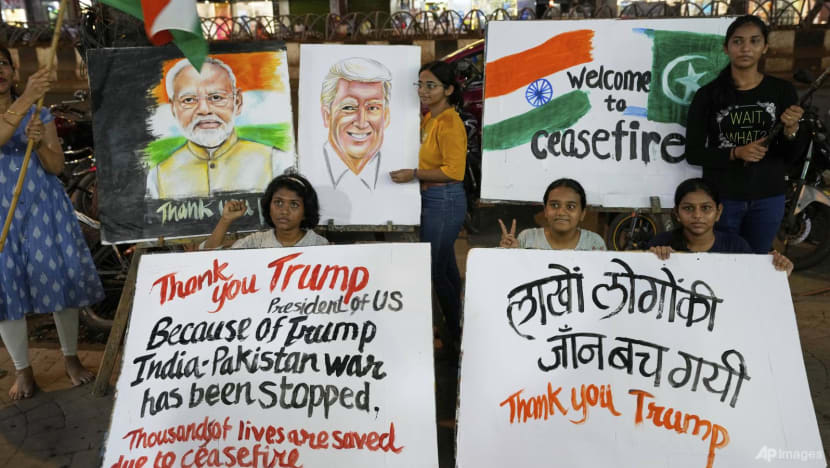

In a surprising turn of events, India and Pakistan have reached a ceasefire agreement, yet both nations are already trading accusations of violations. The ceasefire, announced by former US President Donald Trump, aimed to de-escalate tensions following weeks of intense clashes, missile strikes, and drone attacks. These hostilities were triggered by a tourist massacre that India attributed to Pakistan.
Within hours of the ceasefire announcement, however, the situation became fraught with claims of breaches from both sides. India's Foreign Secretary, Vikram Misri, reported "repeated violations" by Pakistan, citing explosions heard in Srinagar. Similarly, reports emerged of projectiles and flashes witnessed over Jammu. Pakistan's Foreign Ministry countered, affirming their commitment to the ceasefire while accusing India of violations. They stated their forces were handling the situation with "responsibility and restraint".
The back-and-forth accusations quickly drew attention and concern. Omar Abdullah, the chief minister of Jammu and Kashmir, questioned the ceasefire's status given the reported explosions in Srinagar. Misri described Pakistan's actions as a "breach of the understanding" and asserted that Indian armed forces were responding appropriately. Pakistan, however, maintained its forces were acting with restraint despite alleged Indian violations.
Despite the allegations, leaders from both sides have expressed their commitment to the ceasefire. Pakistan's Prime Minister Shehbaz Sharif thanked Donald Trump for his role in brokering the agreement and acknowledged the support of other nations, including Saudi Arabia, the UAE, Turkey, Qatar, and China. He also conveyed that Pakistan believes this ceasefire marks a new beginning, paving the way for resolving issues that have long plagued the region.
The international community has largely welcomed the ceasefire, hoping it will lead to sustained peace. UN Secretary-General Antonio Guterres called it a "positive step," while Iran urged both countries to use the opportunity to reduce tensions. US Secretary of State Marco Rubio indicated that discussions on a broader range of issues at a neutral site were being planned.
However, analysts caution that the situation remains fragile. Sahar Khan, a security analyst, highlighted that the reported violations underscore the tenuous nature of peace along the Line of Control (LoC). She noted that previous ceasefire agreements have been broken, suggesting that continued efforts and communication are crucial for maintaining stability.
The coming days will be critical in determining whether the ceasefire can hold and whether India and Pakistan can move towards a more peaceful relationship. The initial claims of violations highlight the deep-seated mistrust and challenges that both nations face in achieving lasting peace.